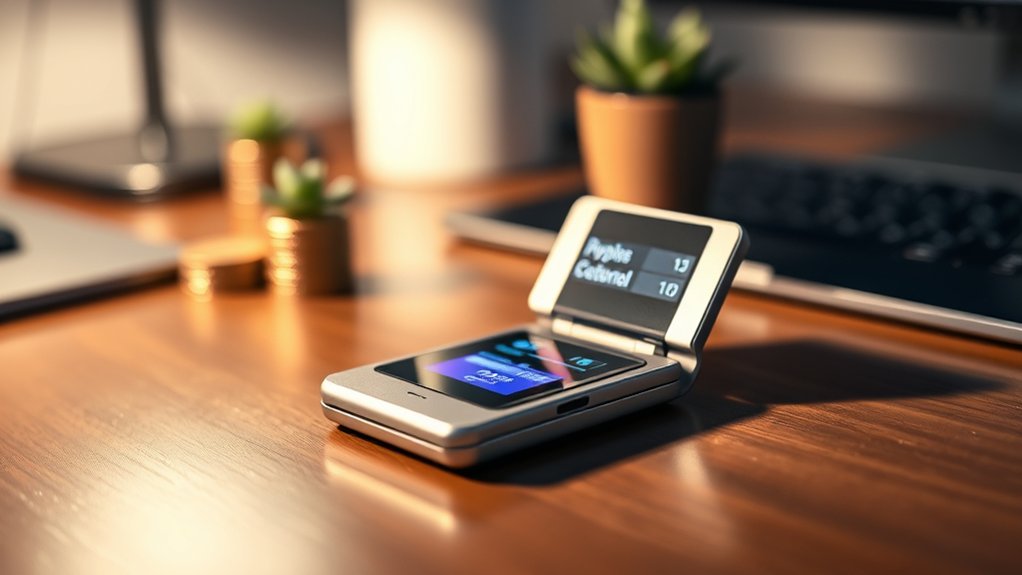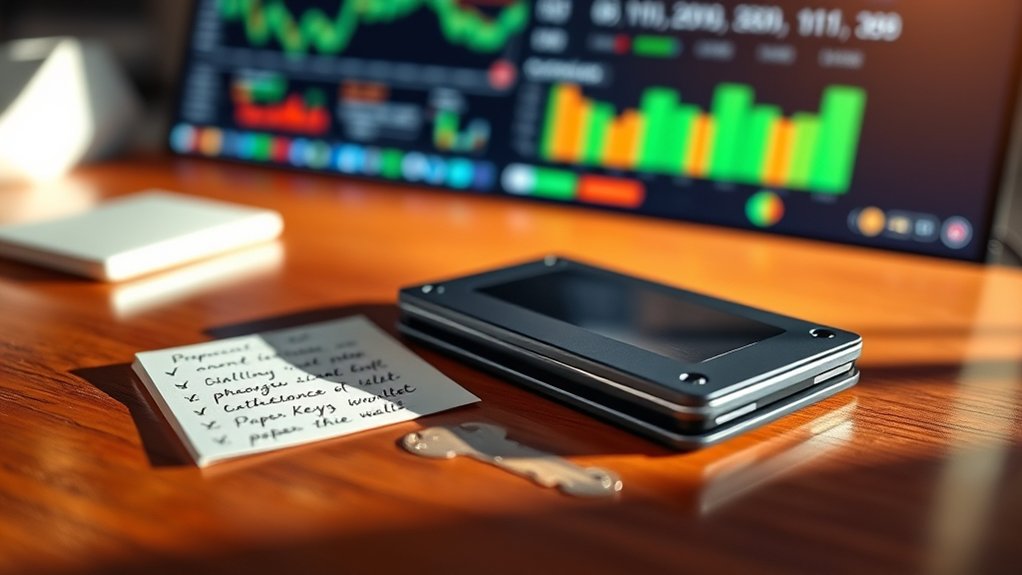A self-custody crypto wallet is where users take full control of their digital assets. No third-party middlemen, no interference. You hold the keys, literally. It’s empowering, but guess what? You’re solely responsible for your crypto security. Lose that seed phrase? Say goodbye to your funds. You can choose from paper, hardware, or software wallets—your choice. Each option has its quirks. Want to dive deeper into this whole self-custody thing? There’s more to unwrap here.

In a world where control is everything, self-custody crypto wallets stand out like a beacon for those who want to keep their digital assets close and personal. These wallets put users in the driver’s seat. No more relying on third-party services to manage private keys. That’s right—self-custody means you’re the boss. If your assets disappear, you’ve got no one to blame but yourself.
Self-custody crypto wallets empower users to take full control of their digital assets—no third-party interference, just you and your keys.
There are different flavors of self-custody wallets. Paper wallets are like the old-school method—keys scribbled down on paper. Totally offline, less susceptible to hackers. Then there are hardware wallets, secure little devices that guard your keys like a dragon on a treasure hoard. And let’s not forget software wallets, which can live on your phone or computer. Trust Wallet and MetaMask are popular choices; they make accessing your assets a breeze. Self-custody wallets provide secure storage for cryptocurrencies and enable interaction with Web3 protocols, facilitating decentralized finance (DeFi) activities. Additionally, operational security is enhanced as businesses eliminate reliance on third-party custodial services, reducing exposure to cyberattacks. Furthermore, understanding the different types of cryptocurrency wallets can help users make informed choices.
But here’s the kicker: with great power comes great responsibility. Users have to secure their assets themselves. Forget about calling customer service if you mess up. Strong passwords, regular backups, and making sure your software is up to date are all on you. Slip up, and you could lose everything. It’s a double-edged sword, really.
The benefits sound great on paper. Full autonomy without third-party interference? Check. Lower fees and enhanced privacy? Yep, that too. Want to dabble in decentralized finance? Self-custody wallets let you plunge into that pool without a lifeguard. Just remember, custodial wallets are like a security blanket—they’re user-friendly, but you’re putting your trust in someone else. If that provider gets hacked, good luck getting your assets back.
Setting one up is simple enough. Download the software or buy the hardware. Fund it with crypto, and you’re off to the races. Just don’t forget that seed phrase—it’s your golden ticket to your funds.
In this rollercoaster world of crypto, self-custody wallets are the ride you control. Buckle up!
Frequently Asked Questions
Can I Use a Self-Custody Wallet for Multiple Cryptocurrencies?
Absolutely, a self-custody wallet can handle multiple cryptocurrencies.
It’s like a one-stop shop for your digital assets. No need for different wallets cluttering your life.
But be warned: managing those keys is on you. Forget them, and goodbye funds! It’s thrilling but risky.
Sure, you get independence and possibly lower fees. But if you mess up, well, that’s your problem.
How Do I Back up My Self-Custody Wallet?
Backing up a self-custody wallet? Oh, it’s a must. Forgetting your seed phrase is like losing a treasure map.
You’ve got options. Cloud storage? Sure, if you like the idea of hackers. Paper copies? Classic, but keep them safe. Metal backups? Now we’re talking durability.
Split your seed phrase? Genius! Just don’t turn it into a scavenger hunt.
Test your recovery methods too. Because, trust me, you don’t want surprises when it’s time to access your crypto.
Are Self-Custody Wallets Secure Against Hacking?
Self-custody wallets? They’re not hacker-proof.
Sure, they give you control, but that means you also handle your security.
Hot wallets? They’re like leaving your front door wide open.
Cold wallets, the offline champs, are a better bet.
But even they aren’t invincible.
If you don’t protect your seed phrase, good luck.
In the wild west of crypto, it’s on you to keep your stash safe.
Trust no one, especially not yourself!
What Happens if I Lose My Self-Custody Wallet?
Losing a self-custody wallet? That’s a nightmare.
If you don’t have your seed phrase, forget it. Your crypto assets? Gone. Poof!
Even if you keep the phrase, losing the wallet isn’t great either; it’s a hassle to recover.
Backing up is essential. Seriously, storing that seed phrase somewhere safe is like hiding a treasure map.
Lose both? Congrats, you’ve just become a crypto ghost, haunting the blockchain forever.
Are There Fees Associated With Self-Custody Wallets?
Yes, there are fees with self-custody wallets. Think transaction fees, which are paid to miners for processing. Fun, right?
Plus, users must learn about blockchain security—because who doesn’t love extra homework?
And if you decide to run a full node, get ready for hardware and electricity bills.
Don’t forget the risk of theft; losing assets is a real possibility. It’s not all rainbows and sunshine in self-custody land.





